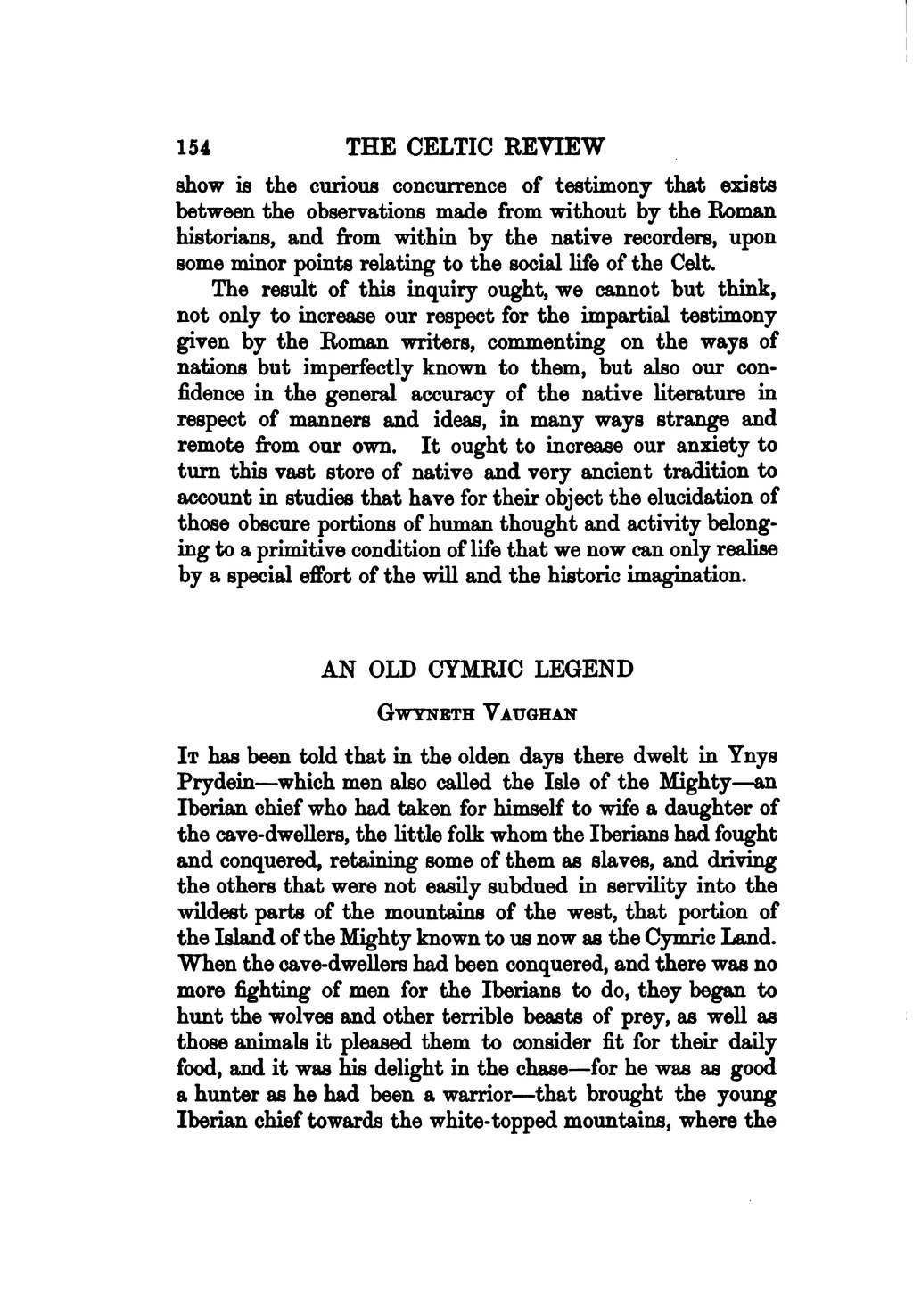show is the curious concurrence of testimony that exists between the observations made from without by the Roman historians, and from within by the native recorders, upon some minor points relating to the social life of the Celt.
The result of this inquiry ought, we cannot but think, not only to increase our respect for the impartial testimony given by the Roman writers, commenting on the ways of nations but imperfectly known to them, but also our confidence in the general accuracy of the native literature in respect of manners and ideas, in many ways strange and remote from our own. It ought to increase our anxiety to turn this vast store of native and very ancient tradition to account in studies that have for their object the elucidation of those obscure portions of human thought and activity belonging to a primitive condition of life that we now can only realise by a special effort of the will and the historic imagination.
AN OLD CYMRIC LEGEND
Gwyneth Vaughan
It has been told that in the olden days there dwelt in Ynys Prydein—which men also called the Isle of the Mighty—an Iberian chief who had taken for himself to wife a daughter of the cave-dwellers, the little folk whom the Iberians had fought and conquered, retaining some of them as slaves, and driving the others that were not easily subdued in servility into the wildest parts of the mountains of the west, that portion of the Island of the Mighty known to us now as the Cymric Land. When the cave-dwellers had been conquered, and there was no more fighting of men for the Iberians to do, they began to hunt the wolves and other terrible beasts of prey, as well as those animals it pleased them to consider fit for their daily food, and it was his delight in the chase—for he was as good a hunter as he had been a warrior—that brought the young Iberian chief towards the white-topped mountains, where the

